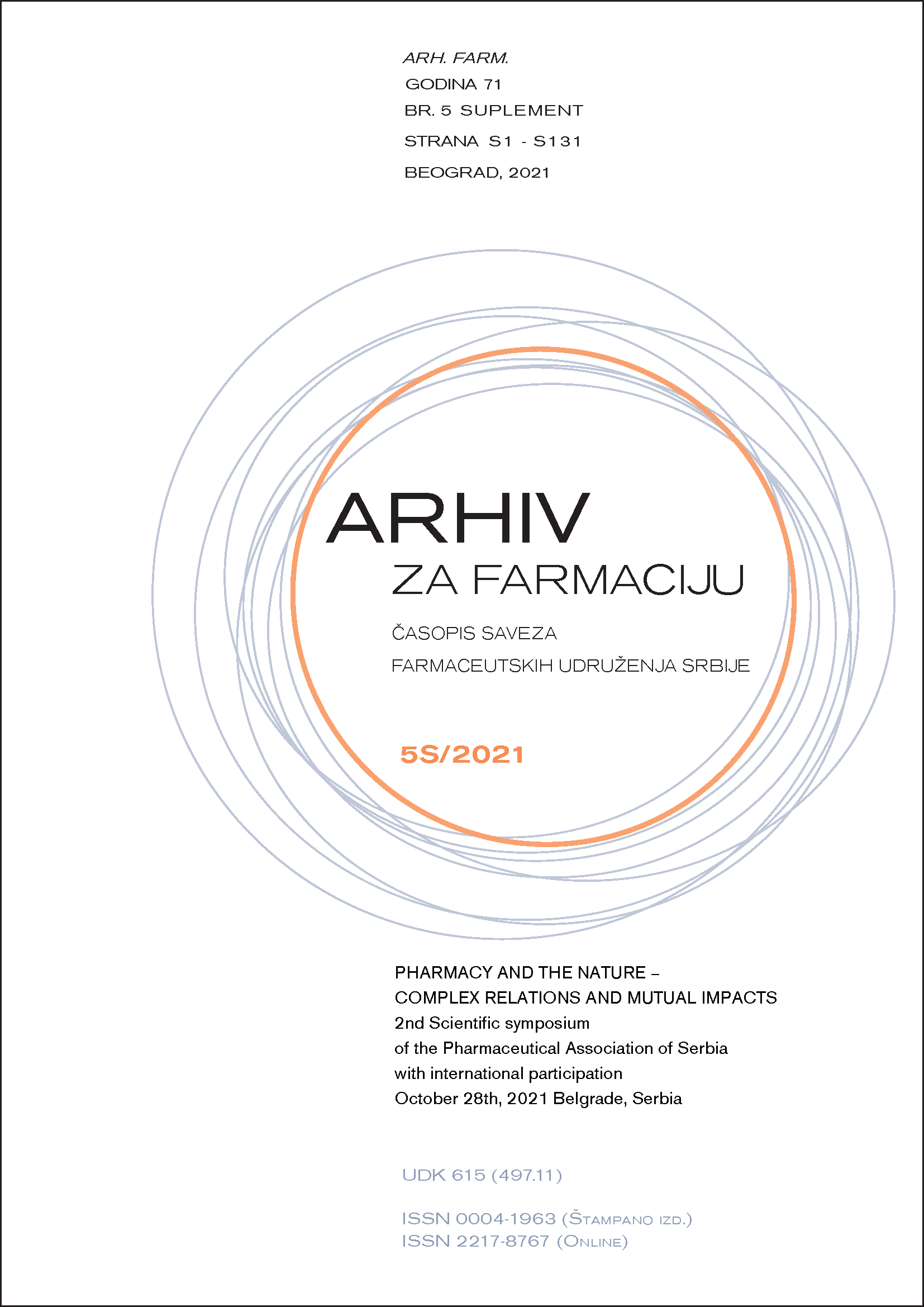INVESTIGATION INTO THE INFLUENCE OF CARRIER TYPE ON CHARACTERISTICS OF LIQUISOLID COMPACTS PREPARED WITH NATURAL ACTIVE PRINCIPLES
Abstract
The use of herbal preparations and preparations based on bee products is increasingly present in modern therapy, but the number of solid dosage forms with these active principles present on the market is relatively small (1). Liquisolid systems are formulations where liquid medication is converted into powder with good flowability, compressibility and compactibility, using selected excipients. This simple and energy efficient process could find application in the production of solid dosage forms with liquid extracts, which would contribute to overcoming some of the challenges associated with the use of these preparations, such as imprecise dosing, unpleasant taste and ease of application for patients (2). The aim of this study was to examine the influence of carrier type on flowability, tabletability, disintegration and wettability of liquisolid compacts prepared with natural liquid extracts.
Syloid® XDP 3050, Neusilin® US2, Fujicalin® and Vivapur® type 101 were used as carriers, and colloidal silicon dioxide as a coating agent. St. John's wort oil extract and propylene glycol extract of propolis were used as the liquid phase. The admixtures were prepared using mortar and pestle, concentration of liquid phase ranged between 15.4% and 49.8%. Flowability was examined by three different methods. Compaction properties were tested after compression on an eccentric tablet machine and compaction analyser. Disintegration time and wetting properties were investigated, as well.
The admixtures containing St. John's wort oil extract showed good flowability regardless of the carrier used. Admixtures containing propolis extract showed fair flowability, except the admixture with Neusilin® US2 as a carrier which, despite the high liquid load, showed good flowability. Acceptable tensile strength was achieved in all compacts compressed using compaction analyser. The influence of formulation factors (type of carrier, type and concentration of liquid phase) on wettability of liquisolid compacts was observed. The shortest wetting time was achieved with microcrystalline cellulose, in compacts with St. John's wort oil extract, and Fujicalin®, in compacts with propylene glycol extract of propolis, respectively. In both cases, the highest water absorption ratio was achieved with microcrystalline cellulose as a carrier. Liquisolid compacts with propylene glycol extract of propolis and Fujicalin® showed satisfactory disintegration time, while the addition of a superdisintegrant would be necessary for all the other formulations.
The obtained results indicate a significant potential for the application of highly porous carriers and liquisolid technology as an approach to convert liquid preparations with natural active principles into tablets, a dosage form widely accepted by patients.

